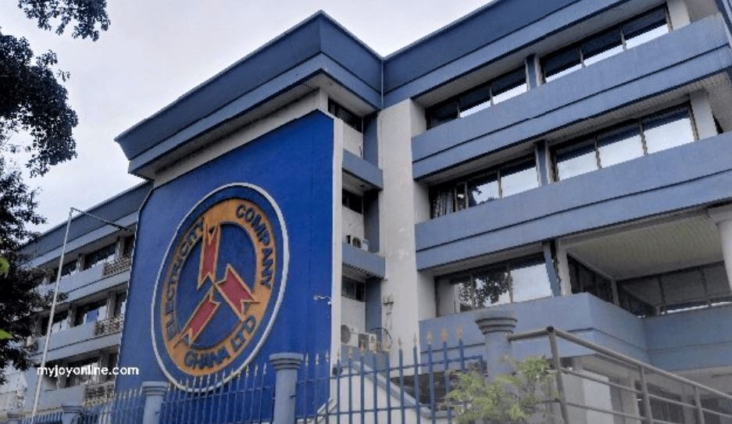In its July 2023 publication, titled 'Energy Alert', the African Center for Energy Policy (ACEP), an energy think tank, has raised concerns about the GHS 3.1 billion collected by the Electricity Company of Ghana (ECG) and its transparency.
ACEP questions the accountability of ECG's financial management, citing reports from the Cash Waterfall Mechanism (CWM).
According to ACEP's report, between March and April, ECG reported a total revenue of GHS 1.1 billion, averaging GHS 550 million per month.
However, this amount represents only about 35% of the GHS 3.1 billion claimed by ECG.
ACEP's report also reveals that more than 50% of the reported revenue, approximately GHS 540 million, was used for discretionary spending by ECG.
Furthermore, ACEP highlights that the balance of GHS 1.1 billion accounted for represents only about 11% of the revenue requirement for the sector under the CWM for March and April 2023.
Regarding the usage of GHS 540 million for liquid fuel procurement, ECG claims it was necessary due to shortfalls in gas supply. However, ECG refused to pay the gas suppliers through the Ghana National Petroleum Corporation (GNPC).
The Centre's report further reveals the repercussions of ECG's non-payment to the gas sector companies. The West Africa Pipeline Company Limited (WAPCO) reduced reverse flow gas volumes, and on July 1, 2023, gas supply was curtailed due to outstanding payments.
ACEP's report also sheds light on the arrears of gas supply payments from the Sankofa Gye Nyame (SGN) field, amounting to nearly $600 million. The report states, "Gas supply payments from Sankofa Gye Nyame (SGN) field are also in arrears of nearly $600 million – about $380 million for LC drawdowns and additional invoices of about $207 million."
ACEP questions ECG's priorities, especially when the government has already paid over $1 billion for gas consumed by the power sector since 2018.
"The government has already paid more than $1 billion for gas consumed by the power sector since 2018, though captured in the tariff. Thus, for ECG to ignore all the realities and pay for liquid fuel while undermining gas supply, it is not difficult to conclude that the company does not care about the fiscal damage it causes to the public."
ACEP's report highlights a significant discrepancy in ECG's allocation of revenue under the Cash Waterfall Mechanism (CWM). According to the CWM formula, ECG was entitled to 26.37% of the revenue, which should have amounted to about GHS 113.5 million of the reported revenue of about GHS 430 million for March and April.
However, ECG disbursed approximately GHS 256 million to itself, deviating significantly from the prescribed allocation formula. ACEP's report states, "ECG, in a glaring discrepancy, allocated a disproportionate amount of its revenue under the Cash Waterfall Mechanism (CWM) to itself while significantly underpaying other entities within the value chain."
The report also reveals the stark difference in payment percentages between ECG and other entities within the value chain. While ECG disbursed about 78.4% of its billed invoices for March and April, it paid only between 3.1% and 12.4% of the invoices billed by other entities.
ACEP's report states, "The GHS 256 million ECG encumbered is about 78.4% of its billed invoices for March and April. On the contrary, ECG paid between 3.1% and 12.4% of the invoices billed by other entities within the value chain."
ACEP concludes that ECG's actions not only disrupt the balance of the energy sector but also undermine the financial stability of the country. The report emphasizes the need for a thorough investigation into ECG's financial practices and the whereabouts of the GHS 3.1 billion collected.
ACEP urges the government to take immediate action to restore trust and confidence in the energy sector. It emphasizes the importance of transparent revenue collection, proper financial governance, and accountability to ensure a sustainable and reliable power supply for Ghana
Latest Stories
-
US$ 232,960 alleged Cannabis: One more grabbed and remanded
48 minutes -
Video: Hitz FM’s Rep Ur Jersey ends in style as fans jam to afterparty beats
8 hours -
Hitz FM’s Rep Ur Jersey turns electric as PSG thrashes Inter 5–0 in Champions League showdown
9 hours -
PSG thrash Inter Milan to win first-ever Champions League title
9 hours -
Aviation Social Centre packed as UCL Finale kicks off at Hitz FM’s Rep Ur Jersey
10 hours -
Photos: Fans win big at ‘Rep Ur Jersey’ as sponsors reward game participants with exciting prizes
10 hours -
Australia to increase contribution to UN Peacebuilding Fund to $15m annually – High Commissioner
10 hours -
Dr. Angela Dwamena-Aboagye named MTN Hero of Change for championing women and children’s rights
10 hours -
From Morocco to Botswana – Africans turn to trusted media and experts for climate change information
11 hours -
Mahama announces Labour Export Programme
11 hours -
Prof. Peter Atudiwe Atupare appointed Dean of University of Ghana School of Law
11 hours -
Goldbod is already doing wonders – Mahama praises CEO Sammy Gyamfi
12 hours -
Mahama promises attractive cocoa price in August, pledges 200,000 hectare boost to sector
12 hours -
UHAS Council Chairman Prof. Kodzo Gavua urges graduates to serve with passion, integrity, and innovation
13 hours -
Dr. Charisa Ogbogbo becomes first female professor in Mathematical Sciences at UG
13 hours

